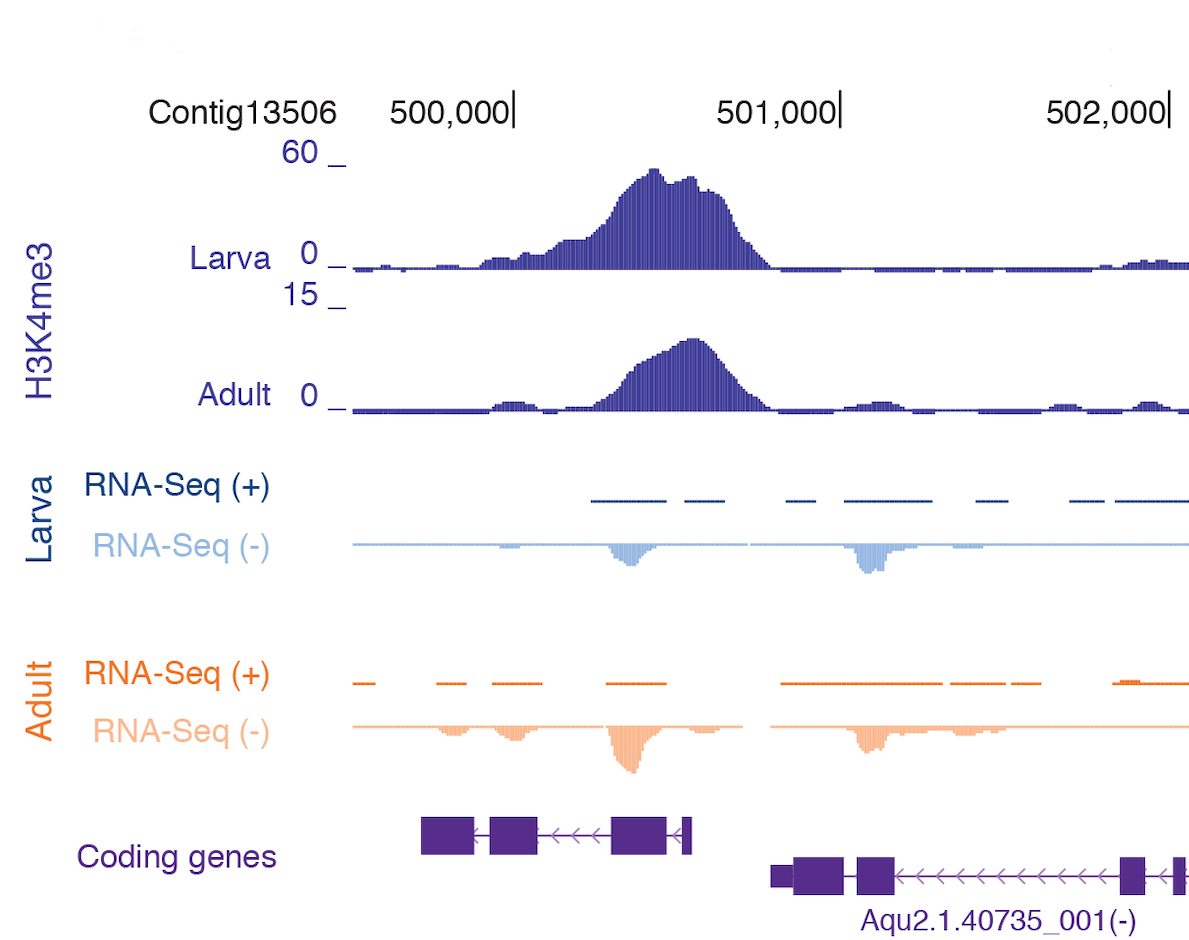Developing a scalable genome browser and repository for complex multi-omic datasets.
Full Title
Developing a scalable genome browser and interactive repository for large and complex multi-omic datasets from non-model organisms of environmental and economic importance.
Aims
- Develop a multi-omics repository to significantly enhance the collaborative value of genomics projects for diverse multicellular non-model species. Specifically, the project will expand functionalities of existing Apollo platforms, established with support from QCIF, to enable interactive visualisation of large multi-omics data sets. This will maximise the potential for internationally collaborative genome interrogation and annotation via a genome web browser.
- Develop the interactive, flexible data repository and browser as an exportable template for a one-stop shop to view and interrogate all multi-omics data, with potential to greatly enhance the contribution of non-model genomics to diverse fields of science.
Brief project outline
Genomic, transcriptomic, proteomic and associated approaches are being employed in increasingly wider contexts to understand biological systems and how they change. This necessarily means moving beyond a handful of well-supported model organisms to diverse wild, non-model organisms that are driving an avalanche of ‘omics data being generated across the globe. Unfortunately, datasets are often fragmented and intractable, and thus of limited utility beyond the initial study. This huge untapped potential can be released by making data much more accessible and usable – i.e. democratised – by integrating all datasets related to a specific genome into a comprehensive, visual, standardised and publicly-available system.
Project Summary
To realise this potential, this project will develop an expandable Apollo browser as an interactive repository for diverse transcriptomic, chromatin-state and proteomic data. Existing genomes of two Great Barrier Reef animals can be readily deployed to populate and test the browser as it is being developed: (i) the reef flat demosponge Amphimedon queenslandica and its proteobacterial symbionts; and (ii) the notorious destroyer of coral reefs, the crown-of-thorns starfish (COTS). Existing ‘omics datasets for these species will then be mapped to the genomes, to be visualised as customised on-demand/collapsible tracks.
Genomics-based innovative aspect of proposal
The expandable Apollo browser will provide a template for the increasing number of non-model species with emerging multi-omic data. Current GIH dry lab staff have limited skills in the database administration and IT system administration required to deploy, set-up, customise and maintain this complex software system. Working closely with QCIF, GIH dry lab staff will gain further exposure to software functionality, and to the various file formats used by genome browsers, by contributing to system validation and testing. This will provide excellent opportunity for GIH dry lab staff to develop important new capabilities to support the increasing number of innovative multi-omics projects at UQ.
Broad applicability of the technique
Apollo is a widely adopted genome annotation and browsing platform, chosen by the Australian BioCommons as a national standard to support large initiatives of national and international reach (https://apollo-portal.genome.edu.au). The PacBio Sequel II at UQ will dramatically increase the number of draft genomes being de novo assembled on campus, and likely often complemented with Iso-Seq transcriptomes. Combined with broader availability of other -omics technologies, UQ researchers in diverse fields of science will benefit from applying the expandable Apollo template to manage, search, visualise, explore and share their transcriptomic, epi-genomics and proteomic data. This includes multiple groups in marine and terrestrial science; animal, plant and fungal biology and evolution; ecology and environmental sciences; agriculture and other applied sciences.
At project completion, the browser development tool will be made widely visible and available via publication of a MGL/QCIF/GIH paper following the FAIR principles. Additional documentation on how to set up and use the tool will be made available on the Australian BioCommons Apollo Portal.
Outcomes
Webinar: Launching the new Apollo Service: collaborative genome annotation for Australian researchers, hosted by Australian BioCommons.
News and media releases
Building better genome browsers, QCIF news, 20 April 2021
Building better genome browsers, Australian BioCommons, 26 February 2021
Impact stories
Find out more information about the research conducted at the Degnan Marine Laboratory on UQ's impact story "Toppling the crown"











